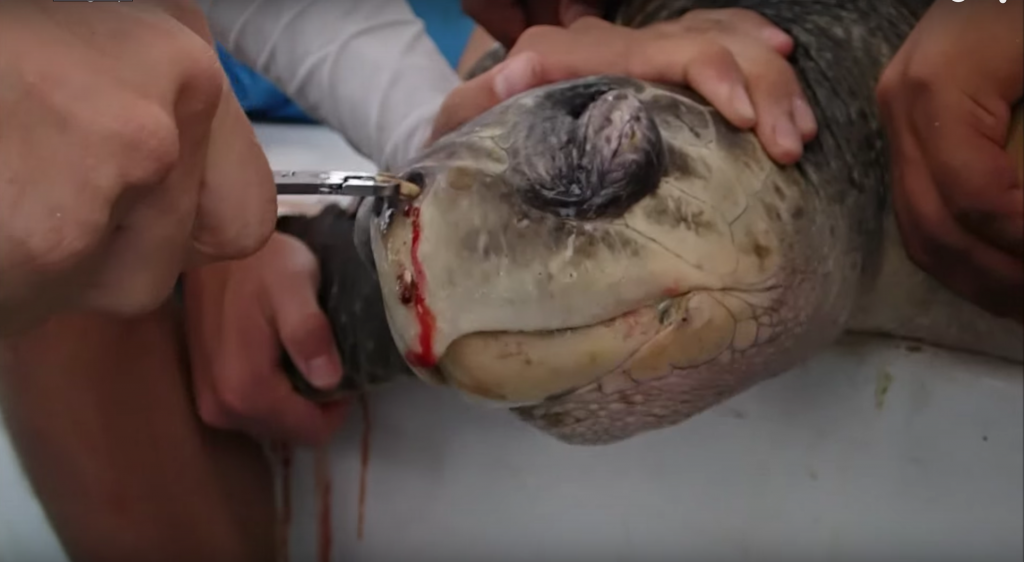Video: Watch What One Plastic Straw Does To Endangered Sea Turtle

(EnviroNews World News) — It’s no secret the world’s oceans are now completely littered with plastic due to human activities. By now, many people have also been made aware of the gigantic gyres in the midst of the oceans, where plastic is whirled by currents into massive “garbage patches.” One of those gyres, aptly called the “Great Pacific Garbage Patch,” is located between California and Hawaii, and is said to span an area twice the size of Texas.
Photos have circulated around the world containing birds that have decayed in the wild after death — leaving piles of only feathers, bones, and plastic behind, after engorging themselves with lighters and bottle caps while attempting to catch brightly colored fish.


Most recently, a video circulated online shows the utter devastation that can be wreaked by something as simple as a 4.7-inch plastic straw — on a large, but endangered sea turtle — a creature that can live up to a century with a stable habitat and a little luck.
Members of The Leatherback Trust, a non-profit international turtle conservation group, picked up the turtle in Costa Rican waters, and fortunately for the animal, and the ecosystem, were able to remove the object, disinfect the area, and return the animal to the wild.
The question this video raises: What would have happened to the creature had people not been around to help? The next question: How often are humans around to help when a bird, fish or other sea creature tangles with a plastic bag, bottle cap, lighter, or straw?
MORE ON PLASTIC IN THE WORLD’S OCEANS BY ENVIRONEWS
Saving the World One Organic Cotton Shopping Bag at a Time
FILM AND ARTICLE CREDITS
- Emerson Urry - Journalist, Author



